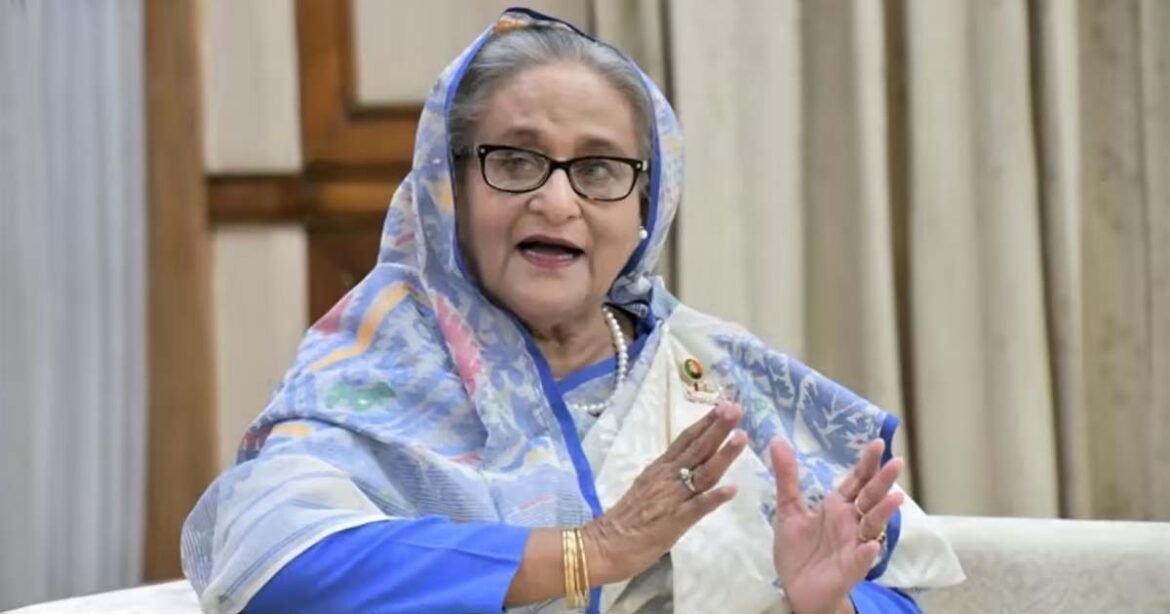Bangladesh is in discussions for free trade agreements with 11 countries, according to Prime Minister Sheikh Hasina, as the country seeks new export promotion strategies once preferential tariff exemptions expire in three years.
Bangladesh is scheduled to graduate from the LDC group in November 2026. As a member of the World Trade Organization and a least developed country, Bangladesh has unilateral duty-free and quota-free access to 38 developed countries. The facility grants Bangladesh duty-free export access to these markets without requiring Bangladesh to provide a reciprocal duty-free facility. Once it loses LDC status, it loses access to everything.
You can also read: What are the agendas of PM Hasina’s tri-nation official tour?
The United Nations Conference on Trade and Development (UNCTAD) estimates that Bangladesh will lose more than 14% of its exports, or $5 billion annually, once it “graduates.” In light of this, Prime Minister Sheikh Hasina has stated that Bangladesh is negotiating free trade agreements with eleven nations.
FTAs to increase business and trade
Bangladesh will face a “very different situation” once it completes the transition out of “Least Developed Country” status, a United Nations classification that exempts the poorest nations from tariffs on exports to developed countries, said Prime Minister Sheikh Hasina in an interview at Gonobhaban on April 18.
In 2026, the nation of approximately 170 million people will lose its current privileges after achieving the graduation standards. PM Hasina stated
“Therefore, we have taken the initiative” to pursue a variety of trade agreements. “We want to sign these FTAs so that we can increase our business and trade. At present, with 11 countries, we are discussing,” she added.
Bangladesh has limited trade agreements with other developing nations but no FTAs at present. HPM Hasina did not name the prospective new partners, but India, China, and Japan are anticipated to be among them. At the end of last year, Dhaka and Tokyo launched joint FTA studies.
Focus on diversity
After China, Bangladesh is the second-largest exporter of apparel in the world. However, since these products account for 80% of its exports, diversification is a top priority. HPM Hasina indicated that the food processing and digital equipment industries were promising. She also highlighted the Bay of Bengal’s resources, including its fisheries.
“Now we want to explore how we can use [the bay] for our economic development,” she said.
The strategic significance of the bay and Bangladesh in particular is growing for the world’s leading nations. Washington, New Delhi, and Beijing are all interested in expanding their influence in the nation. The Prime Minister, for her part, affirmed her dedication to neutral diplomacy.
“Our top priority is how we can develop our country. I believe that for our development, we should have good relations with every country,” she said.
“Japan’s ties are instrumental to development”
“Ties with Japan have been instrumental to the development story so far”, HPM Hasina emphasized.
In September 2014, then-Prime Minister Shinzo Abe pledged four to five years’ worth of financial assistance totaling 600 billion yen ($4.4 billion at the current exchange rate). The quantity of yen loans over the next seven years, totaling 1.65 trillion yen, greatly exceeded the amount promised.
Bangladesh opened its first metro rail line and first industrial complex with international-standard infrastructure by the end of 2022 with assistance from Japan. A Japanese company is anticipated to operate the newly constructed terminal at the international airport in Dhaka. In addition, Japan is leading and financing the development of Bangladesh’s first deep-sea port in the southern Matarbari district.
“For infrastructure development, for economic cooperation, Japan has been very cooperative and supportive to Bangladesh,” the premier said during the interview.
There are at least two major factors that make Bangladesh so attractive to Japan. Due to a combination of garment exports and remittances from Bangladeshi nationals working abroad, the country’s gross domestic product has grown between 6-7% annually in recent years. Even during the prime phase of the COVID-19 pandemic, from July 2021 to June 2022, a positive result was recorded.
Second, the World Bank forecasts that the current fiscal year’s growth rate will also be relatively robust, at 5.2%. Some claim that this nation has replaced Myanmar as “Asia’s last economic frontier.”
According to the Bangladesh Prime Minister, investors in Bangladesh “can have access other countries also.” Japan envisions Bangladesh as one of four potential recipients in the first year of its new Official Security Assistance (OSA) program, which will provide free military equipment to allied nations.
In addition, Dhaka and Tokyo is set to sign eight bilateral agreements on agriculture, metro train, industrial enhancement, ship recycling, customs, intellectual property, defense cooperation, ICT, and cyber security during HPM Hasina’s current official visit to Japan.


